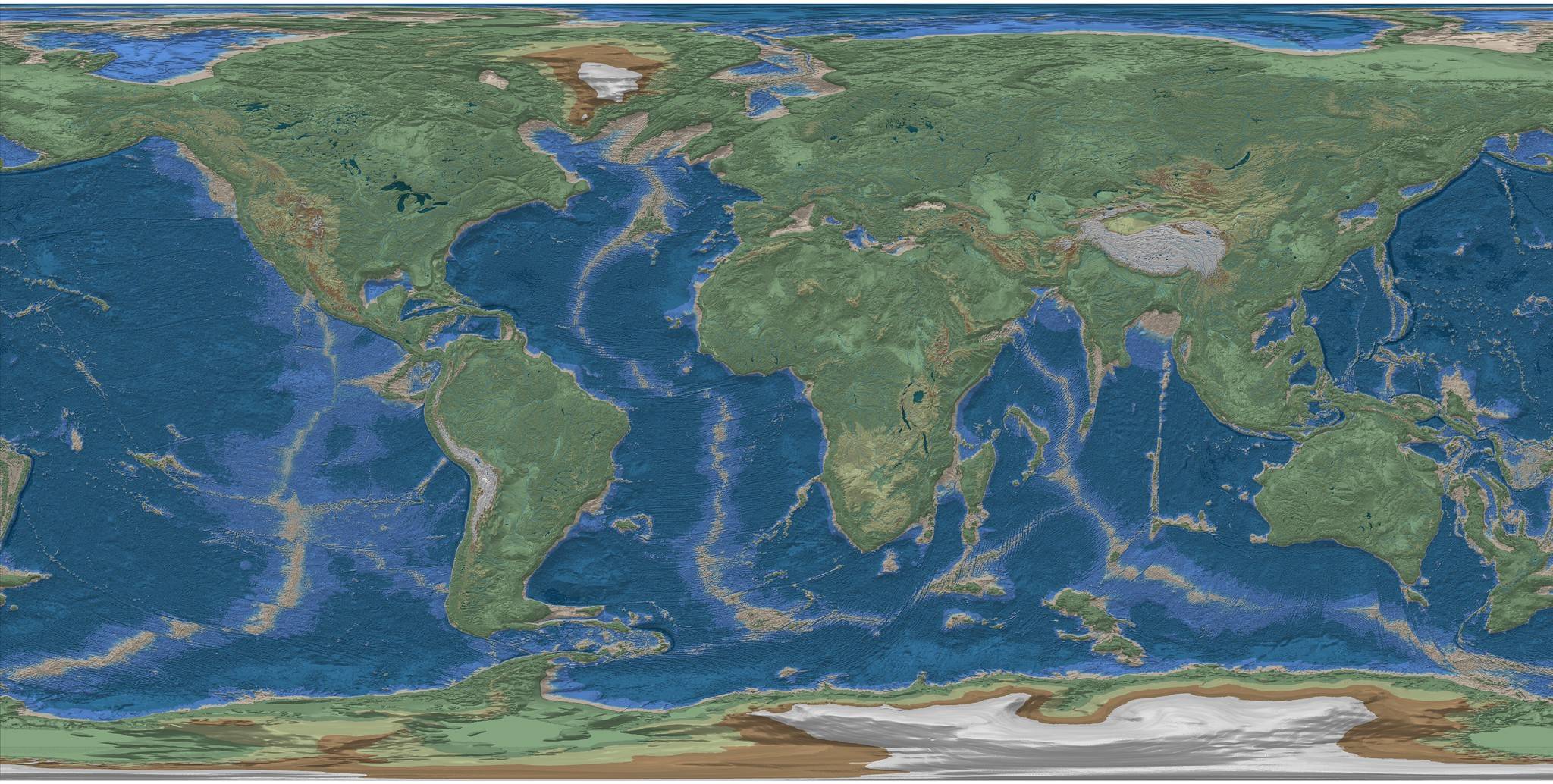The unfortunate truth is that hundreds of millions of years in the future, Earth will have used up all of its radioactive materials. And when that happens, tectonic activity will stop and magma will no longer stay hot. And when that happens, no new rock will form.
Now in an alternate Earth, the map of the 21st century looks a bit like this:
Hanley Brand made this map with the intention of what Earth would look like if sea levels were to be reduced so substantially that all of the continental shelves are now above sea level. But what if, instead of sea level drop, this was made as a result of magmatic hyperactivity?
Here's the scenario: From 56 to 23 million years ago, magma had been on the acceleration, thickening the granitic bases of the continents and performing the ancient magic of turning basalt into granite. At the rate that the magma would have made to create all of this, would this have resulted in such a drain in the magma reserves to the point of shortening the remainder of Earth's lifespan?

